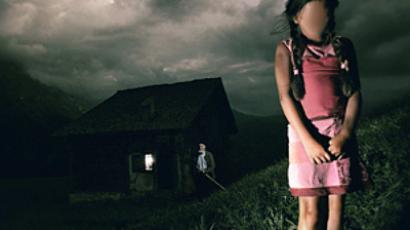Gazans kids battle cancer under a blockade
Children battling cancer who are unable to receive treatment due to the Gaza blockade took to the streets in Gaza, calling for entry permits to other countries like Israel, Jordan and Egypt.
An Israeli hospital where one in two cancer patients comes from Gaza is an oasis of hope for children suffering from the severe disease.
Among the lucky ones to receive treatment is four-year-old Mahmoud Abu Jarrad. He has had stomach cancer for four months. Another is Mohad Sarsawi Kheles. He is seven and he has relapsed three times in three years from leukemia.
“We get patients from Gaza every single day,” said Dr. Yoram Neumann, a pediatrician at the oncology unit in Sheba Medical Center. “They send us a fax, it’s usually a very short letter from the doctor in Gaza who asks to take care of this specific child… Usually we have to send a letter to the border so that the child will be allowed into the country.”
But most children with cancer never make it out of Gaza – like the hundreds who decided to protest in Gaza. Some were brought directly from the hospital, where shabby equipment, poor training and corruption means that many of them will die before the year is out.
“I’ve had blood cancer since I was small,” said Fethie Dagmash, a cancer patient. “Those who don’t let us get the treatment we need in order to survive must be ashamed of what they do. For us to get hospital treatment requires great luck.”
In Gaza's largest hospital, chemotherapy is not available. The only real shot at survival for most cancer patients here is leaving Gaza for treatment abroad. But it can take weeks for Palestinian bureaucrats to organize referrals and for Israel to approve entry.
Rawda Hamada died six month ago from cancer of the stomach. RT’s crew met her when she was trying desperately – but in vain – to get out of Gaza.
“The Israeli soldiers threw bombs with phosphorous under our balconies,” she told RT. “Soon after, my arm began to itch. I went to the hospital and they gave me some liniment. But the itch didn’t end. The borders are closed – this is the reason why I suffer.”
Last week Jerusalem announced it was easing the blockade on Gaza.
But it hasn’t improved the situation by much for those needing urgent specialist medical treatment.
Any day now a flotilla is due to set sail from Lebanon, via Cyprus, to Gaza. Organizers say their weapon against Israeli soldiers is cancer medication for the children in Gaza.
But the blockade is not the only thing to blame. Rivalry between Palestinian factions has brought accusations that Hamas, which governs Gaza, has been trying to score political points by preventing Gazans from getting treatment abroad.
“I think Hamas I trying to instigate a new crisis in Gaza,” Palestinian Minister of Health Fatahi Abu Magli told RT. “The official institutions that are to direct patients to special clinics are under Hamas control.”
Hamas rejects the accusations.
It’s difficult to know just how desperate the situation is in Gaza. Israeli doctors have been stopped from trying to help.
“We’ve been continuously asking for a permit to get into Gaza throughout the last two years, so we don’t really know what’s the actual situation, there is a problem of access of availability of medications,” claimed Dr. Zvi Bentwich, chairman of the Physicians for Human Rights Organization.
And as long as that problem continues, the chances of a child in Gaza overcoming cancer lessen. And each day a child spends in Gaza comes closer to it being his or her last.














